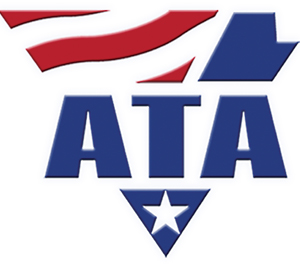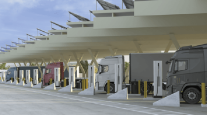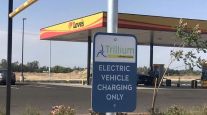Senior Reporter
Public Comment Mixed on FHWA’s Electric Charging Infrastructure Proposal

[Stay on top of transportation news: Get TTNews in your inbox.]
Public comment on a proposed federal regulatory and funding road map for setting up a national electric charging station infrastructure received mixed comments from a wide variety of interested parties.
The Federal Highway Administration’s proposed rule to establish regulations setting minimum standards and requirements for projects funded under the National Electric Vehicle Infrastructure Formula Program is intended to begin the process of transitioning to electric cars and trucks.
“This purpose would be satisfied by creating a convenient, affordable, reliable and equitable network of chargers throughout the country,” FHWA said in a recent Federal Register announcement. “Currently, there are no national standards for the installation, operation, or maintenance of EV charging stations, and wide disparities exist among electric vehicle charging stations in key components.”
While well-intended to suggest funding guidelines for an electric vehicle future, the trucking industry said the proposal raises some concern because it does not allocate specific monetary amounts for medium- and heavy-duty truck charging needs.
While current deployment of medium-duty and heavy-duty zero-emission vehicles is low compared to light-duty vehicle registrations in the United States, electric vehicle truck deployments are expected to grow significantly over coming decades, according to comments filed by American Trucking Associations.
“For instance, there are currently over 140,000 pending orders for commercial zero-emissions vehicles which will be fulfilled across different time scales depending on manufacturer capacity, supply chain constraints, and order size,” ATA wrote. “Trucking begs for an answer to the perennial chicken and egg dilemma facing the industry: what will come first — an EV truck charging network or electric freight trucks? The proposed rulemaking is a critical mechanism to help develop an answer to this age-old question.”
“Given the infancy of electrifying the freight sector and limited charging infrastructure, state officials should work closely with their respective state trucking associations to help ensure the needs of the freight sector are being met both now and into the future,” ATA added.

“Transitioning the trucking sector from diesel to zero-emission technologies, such as battery-electric trucks, is especially consequential for reducing pollution burdens experienced by low-income communities and communities of color, which are more likely to live closer to areas of high traffic and adjacent to ports and rail yards,” wrote the Union of Concerned Scientists
While there were few trucking industry comments on the proposed rule, state departments of transportation, electrical contractors, oil companies and others offered nearly 400 comments:
- The Western Governors Association said, “Western states face a suite of challenges related to planning and siting electric vehicle infrastructure, including the unique needs of both underserved and rural communities, vast distances between communities, limited electric grid infrastructure in sparsely populated areas, and a patchwork of federal, state, and private lands ownership boundaries.”
- The Nevada Department of Transportation said that placing charging stations every 50 miles would be extremely challenging, very expensive, and may not make sense in some cases. “There are many areas that are uninhabited and so remote that they do not have any towns or even a single house that can be seen along the route,” the state agency wrote.
- “The FHWA could require that certain federally funded EV charging facilities be designed solely to serve medium- and heavy-duty commercial vehicle[s],” wrote The National Automobile Dealers Association. “Higher vehicle costs and a lack of public recharging access serve as barriers to the adoption of medium- and heavy-duty electric vehicles. By allowing for limited-access commercial EV charging facilities, the FHWA can help to break down those barriers.”
- Shell USA Inc. recommended removing authority for state departments of transportation to determine “reasonable” uses of program participants’ charging income, “which could dampen private investment and deter the development of a robust EV charging market.”
- Dozens of electrical contractors urged FHWA to reject proposed training requirements “because they are unnecessary and go beyond the role of the federal government.”
- “This rulemaking is a perfect opportunity for FHWA to prompt state-level policy reforms that are necessary to create a robust, ubiquitous market for EV charging,” Natso wrote in a 14-page comment. “We are concerned, however, that FHWA appears to be pursuing consistency and standardization only with respect to certain aspects of the charging marketplace, while effectively inviting states to develop uncalibrated and inevitably in congruous regulatory landscapes.” ... “The uniformity FHWA seeks to achieve through this proposal would be undermined if essential aspects of the rules that govern the charging market differ from state to state.”
Want more news? Listen to today's daily briefing below or go here for more info:




